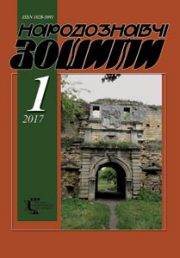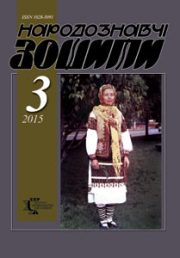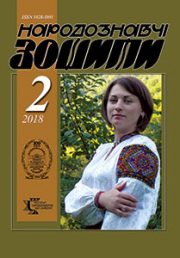The Ethnology Notebooks. 2024. № 2 (176), 316—322
UDK [929:271.4-726.3]:94(477.83-22Дуліби)
DOI https://doi.org/10.15407/nz2024.02.316
THE PRIEST’S PETRUSHEVICH FAMILY IN THE HISTORY OF STRYI REGION AND THE VILLAGE OF DULIBY
TARAS Yaroslav
- ORCID ID: https://orcid.org/0000-0001-7241-9466
- Doctor of Historical Sciences, Professor,
- Institute of Ethnology of the National Academy of Sciences of Ukraine
- Head of the Modern Ethnology Department,
- 15, Svobody Avenue, 79000, Lviv, Ukraine;
- Lviv Polytechnic National University,
- Department of Architecture and Conservation
- 12, Banderу street, 79013, Lviv, Ukraine,
- Contacts: e-mail: etnomod@ukr.net
SHYNKARENKO Dmytro
- Master of Architecture, ФОП
- ORCID ID: https://orcid.org/0009-0003-1510-2085
- Contacts: e-mail: shynkarenko.dmytro@ukr.net
Abstract. The contribution to the spiritual and public life of Galicia in the first half of the 19th century is considered of the Petrushevich fathers in Stryshchyna. Special attention is paid to priest Mykhailo Petrushevich, pastor of the village of Duliby. There is no information about his life activities, origin, but at the same time, we have information about the widely branched family of Petrushevichs, who served the church in Galicia, in particular in Stryi region.
The scientific study and understanding of the pastoral activity of the Petrushevich fathers in Stryi region, in particular the Father Mykhailo Petrushevich in Duliby, is a relevant and important task for understanding the processes that took place in the church and public life of the Galician village in the first half of the 19th century. It will enable us today to understand how Russophile influences over the centuries affected the processes of national identity formation in the villages of Western Ukraine and why we have problems with the Russian Church during the years of Ukraine’s independence.
The purpose of the publication is to analyze the pastoral and social activities of the Petrushevich fathers in Stryi region, to reconstruct the branch of their family tree related to Father Mykhailo Petrushevich, to highlight his life, activities and contribution to the church and public life of the Duliby community.
The object of the research is rural Galician parish priests of the first half of the 19th century, the subject is the life and spiritual activity of Father Mykhailo Petrushevich in the context of his connection with the priestly family of Petrushevich, who settled in Stryi region.
The methodological basis of the study consists of the principles of historicism, consistency, scientific pluralism, objectivity, systematicity, and comprehensiveness. A historical-genetic method was used to arrange the connections in the Petrushevich family tree. The task is to highlight the origin of Fr. Mykhailo Petrushevich, his ministry in the parish in the village of Duliby; to show the contribution of the Petrushevich family to the social and political life of Stryshchyna, to outline the life of a village pastor in the first half of the 19th century.
Keywords: ethnology, the village of Dulyby, Stryshchyna, the Petrushevich family, Mykhailo Petrushevich, the Ukrainian Greek-Catholic Church.
Received 15.03.2024
REFERENCES
- Stryi regional history museum «Verkhovyna», funds department. Doc-66-8732. Zorya Halytska. Lviv [in Ukrainian].
- Fedoriv, I., & Olenych, Ya. (2015). Problems of ethnogenesis and state formation of the Slavic peoples in the scientific heritage of Anton Petrushevych. Ukraine-Europe-World. International collection of scientific articles (Issue 16 (2), pp. 158—162) [in Ukrainian].
- Korolko, A. (2001). Public-political and scientific activity of Anton Petrushevich: diss… candidate of historical sciences: 07.00.01. V. Stefanyk Precarpathian National University. Ivano-Frankivsk [in Ukrainian].
- Kolosovska, O. (2004). The Formation of Anton Petrushevych’s Slavic library. Problems of Slavic studies (Issue 54, pp. 190—201). Lviv [in Ukrainian].
- Melnyk, Ya. (2010). «Fatherless and motherless». Antin Petrushevych: Silhouette of Ivan Franko. Ukrainian literary studies (Issue 72, pp. 239—267) [in Ukrainian].
- Petrushevych, A. (1893). Linguistic and historical research on the beginnings of the city of Lviv and its surroundings (Issue I). Lviv [in Russian].
- Dolnytsky, O. (2004). Annals of the Dolnytsky family. Documents, materials, memories: genealogical research. Lviv: Publishing House of the Ukrainian Catholic University [in Ukrainian].
- Central State Historical Archives of Ukraine, Lviv. Fund 20. Description XVI. Case 242 [in Polish].







